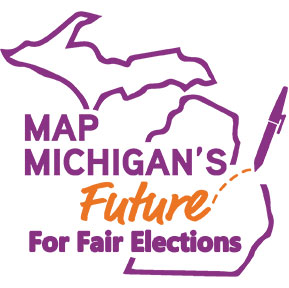Legislative Update 6-11-21
MAC continues to gather answers, devise strategies on ARP spending
 With the release of a new U.S. Treasury FAQ sheet and aggregated language on interim spending rules, Michigan counties now have substantial guidance on how they can use the $1.9 billion in direct investments via the American Rescue Plan.
With the release of a new U.S. Treasury FAQ sheet and aggregated language on interim spending rules, Michigan counties now have substantial guidance on how they can use the $1.9 billion in direct investments via the American Rescue Plan.
Meanwhile, MAC is working with state and local officials on a strategy to help magnify the impact of the billions of dollars coming to all levels of government in our state.
Among key elements in the new Treasury FAQ are:
- Costs of consultants: Recovery Funds CAN be used to cover the costs of consultants to assist with managing and administering the funds.
- Public jobs programs: Recovery Funds CAN be used to establish public jobs programs (I.e. subsidized employment, combined education an on-the-job training, job training to accelerate rehiring or address negative economic impacts, childcare assistance or assistance with transportation to and from a jobsite or interview).
- Revenue loss and audited financial data: If a county does not have audited data readily available when calculating its revenue loss, it is not required to obtain audited data.
- Revenue loss and Census data: When calculating general revenue, counties should use their own data sources and do NOT need to rely on published revenue data from the Census Bureau.
- Revenue loss on cash basis/accrual basis: When determining revenue loss, counties may provide data on a cash, accrual or modified accrual basis, so long as the county is consistent in their choice of methodology throughout the covered period and until reporting is no longer required.
For more context and guidance, counties also can consult documents created by MAC and by NACo that highlight critical issues and concepts.
And MAC continues to work on a plan to earmark close to $4 billion in state ARP funds as matching funds to enhance local efforts. For this plan, the Whitmer administration and legislative leaders have asked for ideas that:
- will be transformational in nature;
- do not create new programs; and
- strategically invest the one-time dollars in areas of greatest need for improvement.
MAC has been having multiple conversations each week with the administration, legislative leaders, business and community leaders and other stakeholders on this idea. Our hope is to create a groundswell of support that bridges the political gap in Lansing and truly provides the resources and value needed for strategic investments in Michigan. As part of that effort, MAC has created a resolution template that counties can use to express support for the matching funds concept.
For questions on this issue, contact Deena Bosworth at bosworth@micounties.org.
Registration is now open for MAC’s 2021 Regional Summits
 Commissioners and other county leaders can learn tips on how to utilize American Rescue Plans and be briefed on the affordable housing crisis and its effects on counties during MAC’s 2021 Regional Summits in late July.
Commissioners and other county leaders can learn tips on how to utilize American Rescue Plans and be briefed on the affordable housing crisis and its effects on counties during MAC’s 2021 Regional Summits in late July.
In light of COVID-19, some changes have been made to the event. All food and beverage will be boxed/packaged, for example. And networking time will be minimized.
As usual, however, MAC will offer the summits at four sites across Michigan:
- July 19 – Grand Rapids
- July 22 – Frankenmuth
- July 26 – Escanaba
- July 29 – Gaylord
Start your registration process by visiting the events page at our website.
“Our summits are designed to provide the most important, most practical information for commissioners and other county leaders in the shortest possible amount of time,” explained Stephan Currie, MAC’s executive director. “This design is in deference to commissioners’ busy schedule and also, this year, to the realities imposed by COVID-19.”
Topics to be covered at all four sessions include:
- Using American Rescue Plan funds effectively
- Worker safety at the office and at home during COVID
- Why your county should be thinking about affordable housing
- The benefits of partnering with Michigan’s community foundations
The summit will run from 8:30 a.m. to 2:30 p.m.; a light breakfast and lunch will be included for the $35 fee.
MAC seeks volunteers for new Juvenile Justice Task Force
 MAC will be nominating two county commissioners to a new Task Force on Juvenile Justice Reform created by Gov. Gretchen Whitmer this week.
MAC will be nominating two county commissioners to a new Task Force on Juvenile Justice Reform created by Gov. Gretchen Whitmer this week.
In announcing the new panel, Whitmer’s office explained the task force as “a partnership between the county and state leaders, as well as other leaders involved in the juvenile justice system. Additionally, the Task Force’s goal will be to develop an ambitious, innovative, and thorough analysis of Michigan’s juvenile justice system, complete with recommendations for changes in state law, policy and appropriations to improve youth outcomes.”
Alongside the governor for the announcement was Lt. Gov Garlin Gilchrist, who will chair the group. The task force will include members from the judicial and legislative branches. Sen. Sylvia Santana (D-Wayne) and Rep. Sarah Lightner (R-Jackson) also made comments during the announcement event.
Under the order, MAC will nominate two county commissioners, or their designee, to serve among appointees from other organizations representing countywide elected officials.
If a county commissioner wishes to serve or has a designee that would be a good fit, please let MAC know immediately by emailing keit@micounties.org. The deadline to submit names is June 18.
In other juvenile justice news, bills to eliminate the ability for courts to access and collect costs associated with juvenile justice services were introduced:
- House Bill 4987, by Rep Kara Hope (D-Ingham), would prohibit any court ordered fee or costs associated with consent calendar services. It removes the ability for any reasonable reimbursement, which under current law requires the court to take into account the juvenile’s income and resources, to be assessed for services under the consent calendar.
- HB 4988, by Rep. Bronna Kahle (R-Lenawee), would prohibit reimbursement for diversion services.
- HB 4989, by Rep. Sarah Lightner (R-Jackson), eliminates the assessment on a DNA sample for juveniles, in which revenues from assessments help support the jail reimbursement program fund and the court equity fund.
- HB 4990, by Rep. Joe Tate (D-Wayne), prohibits any reimbursement by the “juvenile or those responsible for the juvenile’s support” for cost of care outside of the juvenile’s home.
- HB 4991, by Rep. Julie Calley (R-Ionia), eliminates any late fees for juveniles.
MAC opposes all these bills in their current forms.
For more information on this issue, contact Meghann Keit-Corrion at keit@micounties.org.
Housing package advances as MAC continues to express concern
 Bipartisan legislation backed by the Michigan Housing Coalition passed unanimously, without MAC-requested changes, out of Senate Economic and Small Business Development Committee this week, chaired by Sen. Ken Horn (R-Saginaw). The bill package now moves to the Senate floor.
Bipartisan legislation backed by the Michigan Housing Coalition passed unanimously, without MAC-requested changes, out of Senate Economic and Small Business Development Committee this week, chaired by Sen. Ken Horn (R-Saginaw). The bill package now moves to the Senate floor.
Senate Bills 360–361, by Sen. Roger Victory (R-Ottawa), allow employers to claim an income tax credit equal to 50 percent of the total eligible contributions made during the tax year. Eligible contributions would include supporting a local impact housing trust fund or offering employees the option to participate in a qualified employer-assisted housing project that assists employees in securing affordable housing near the workplace.
SB 362, by Sen. Winnie Brinks (D-Kent), would allow a qualified local governmental unit, by resolution of its legislative body, to establish one or more “attainable housing districts.” Within 28 days of receiving a copy of the resolution establishing a district, the county could reject the establishment of the district by written notification to the qualified local governmental unit.
SB 422, by Sen. Horn, creates the “Residential Facilities Exemption” and would allow a temporary tax abatement on qualified new housing development in districts established by local units of government. Within 28 days of receiving a copy of the resolution, a county could reject the establishment of the district.
MAC supports those four bills.
However, MAC did not support two other bills in the package and is working to ensure counties are included in the process of making property tax exemption decisions and community development decisions under SBs 364, by Sen. Jeremy Moss (D-Oakland),and 432, by Sen. Wayne Schmidt (R-Grand Traverse). SB 364 would expand the area in which a Neighborhood Enterprise Zone could be developed. The committee passed version was amended to ensure the expanded NEZ area in a community is adjacent to existing development and a contains 5 or more existing residentials units per acre at the time of designation.
However, there is still no county oversight or involvement during the process under the bill at this point.
SB 432 allows local governments the ability to develop payment in lieu of taxes (PILOT) policies and enter into PILOT agreements with developers who are building or rehabbing affordable housing units. Again, there is currently no county oversight or involvement during the process which would affect property taxes supporting important county programs for growing populations. .
Please refer to MAC’s May 21 update for further information and our written testimony to the chair, committee members and bill sponsors.
For more information on this issue, contact Meghann Keit-Corrion at keit@micounties.org.
Podcast 83 will resume live episodes on June 21
 MAC’s Podcast 83 team continued to field questions about American Rescue Plan funds and the state budget during their most recent live episode on June 7.
MAC’s Podcast 83 team continued to field questions about American Rescue Plan funds and the state budget during their most recent live episode on June 7.
To see the video of the episode, click here.
The Podcast 83 team will take a break on Monday, June 14 and reconvene on the web on Monday, June 21 to discuss legislative action in Lansing and Washington, D.C.
Links to past episodes can be found on the podcast webpage, while every 2021 video episode is now available on MAC’s YouTube channel.
Keep up the emails, resolutions on 4-year terms
 After gaining broad support and bipartisan passage in the Michigan Senate last week, legislation to adopt four-year terms for county commissioners awaits initial action in the House of Representatives.
After gaining broad support and bipartisan passage in the Michigan Senate last week, legislation to adopt four-year terms for county commissioners awaits initial action in the House of Representatives.
Senate Bills 242, by Sen. Ed McBroom (R-Dickinson), and SB 245, by Sen. Jeremy Moss (D-Oakland), would bring four-year terms for county commissioners to Michigan in the 2024 presidential election cycle.
The bills will be referred to the House Committee on Local Government and Municipal Finance on Tuesday.
MAC continues to encourage commissioners to add their voices to the four-year term effort. As of Friday morning, 79 county leaders had responded. Please add your voice to this effort today by clicking here.
MAC also requests that counties adopt official resolutions of support for the legislation. To download a template for this purpose, click here. If you pass such a resolution, please send a copy to Hannah Sweeney at sweeney@micounties.org.
As of Thursday, 27 counties had advised MAC of passage of such resolutions: Allegan, Alpena, Bay, Cheboygan, Clinton, Crawford, Dickinson, Emmet, Genesee, Houghton, Huron, Ionia, Isabella, Lenawee, Macomb, Manistee, Marquette, Mecosta, Newaygo, Oceana, Ogemaw, Ontonagon, Oscoda, Sanilac, Van Buren, Washtenaw and Wexford.
For more information on this issue, contact Deena Bosworth at bosworth@micounties.org.
Survey in field for indigent defense services
 In accordance with the Michigan Indigent Defense Commission (MIDC) Act, the Michigan Indigent Defense Commission (MIDC) must submit a report to the governor and Legislature that includes a recommendation regarding the appropriate level of local share.
In accordance with the Michigan Indigent Defense Commission (MIDC) Act, the Michigan Indigent Defense Commission (MIDC) must submit a report to the governor and Legislature that includes a recommendation regarding the appropriate level of local share.
The MIDC has asked Public Sector Consultants (PSC), a nonpartisan public policy firm, to conduct an evaluation to assist with the MIDC’s recommendation to the Legislature. PSC has developed a survey to gain broad feedback on topics raised during stakeholder interviews and preliminary data collection.
The MIDC is seeking feedback from stakeholders like counties to incorporate ideas and policy recommendations into the MIDC’s report. Please respond to this local share evaluation survey by June 15.
Questions related to the survey can be routed to Erin Lammers at elammers@publicsectorconsultants.com.
Next Michigan Treasury webinar set for June 17
 The next webinar in a series co-sponsored by MAC on local finance issues will run from 2 p.m. to 3:30 p.m. on June 17.
The next webinar in a series co-sponsored by MAC on local finance issues will run from 2 p.m. to 3:30 p.m. on June 17.
The 13th event in the “Updates and Resources for Local Governments” webinar series, co-sponsored by MAC, the Michigan Municipal League, the Michigan Townships Association and the Michigan Department of Treasury, will cover:
- Updates on the American Rescue Plan Act, including eligible uses and receipting
- Strategically utilizing funds
Participants can register and submit questions on the webinar’s registration page.
Additionally, the Michigan Department of Treasury has developed a webpage with numbered letters, memorandums, webinars, and resources regarding COVID-19 updates for local governments and school districts. This webpage was created to ensure that Michigan communities have access to the most up-to-date guidance and is updated frequently with information and resources as they become available.
Redistricting Commission updates meeting schedule
 The Michigan Independent Citizens Redistricting Commission (MICRC) has made some schedule changes to its ongoing series of public hearings for its work to redraw political lines for the 2022 elections.
The Michigan Independent Citizens Redistricting Commission (MICRC) has made some schedule changes to its ongoing series of public hearings for its work to redraw political lines for the 2022 elections.
Please note, the Independent Redistricting Commission will draw district lines for state legislative and federal congressional districts. The lines for county commissioner districts are handled by county Apportionment Boards. For details on the apportionment process, click here or view a recording of a 2021 Legislative Conference workshop on the process.
DETROIT
Tuesday, June 15
Start Time: 5 p.m. (doors open at 4 p.m.)
Follow link to sign-up or RSVP (virtual or in-person)
DETROIT
Thursday, June 17
Start Time: 5 p.m. (doors open at 4 p.m.)
Follow link to sign-up or RSVP (virtual or in-person)
PORT HURON
Tuesday, June 22
Start Time: 5 p.m. (doors open at 4 p.m.)
Follow link to sign-up or RSVP (virtual or in-person)
WARREN
Thursday, June 24
Start Time: 5 p.m. (doors open at 4 p.m.)
Follow link to sign-up or RSVP (virtual or in-person)
MUSKEGON
Tuesday, June 29
Start Time: 5 p.m. (doors open at 4 p.m.)
Follow link to sign-up or RSVP (virtual or in-person)
GRAND RAPIDS
Thursday, July 1
Start Time: 5 p.m. (doors open at 4 p.m.)
Follow link to Sign-up or RSVP (virtual or in-person)
State using webinars to report on health technology
 Over the previous 12 months, the Michigan Department of Health and Human Services (MDHHS) and CedarBridge Group (CBG) have been conducting an environmental scan of the health information technology infrastructure within Michigan. The draft environmental scan findings and recommendations have been presented to MDHHS and the Health I.T. Commission. The time has come to present those findings and recommendations, and collect feedback from all of you, the health information technology stakeholders who have made it all possible.
Over the previous 12 months, the Michigan Department of Health and Human Services (MDHHS) and CedarBridge Group (CBG) have been conducting an environmental scan of the health information technology infrastructure within Michigan. The draft environmental scan findings and recommendations have been presented to MDHHS and the Health I.T. Commission. The time has come to present those findings and recommendations, and collect feedback from all of you, the health information technology stakeholders who have made it all possible.
To begin the effort, MDHHS and CBG will be hosting three webinars starting at 1 p.m. EST. Each will be 60 minutes and begin with a brief presentation of findings and recommendations lasting about 20 minutes. The remaining time will be used for discussion, real-time polling and electronic Q&A. Registration for the webinars is not mandatory and all stakeholders are welcome to attend.
- June 16: https://zoom.us/j/92701629803
- June 24: https://zoom.us/j/92475192797
- June 29: https://zoom.us/j/96190976264
To pre-register, go to http://bit.ly/roadmap_registration.
For questions, contact CedarBridge Group at miroadmap@cedarbridgegroup.com.
 Staff picks
Staff picks
- Ottawa County conducting internet access survey (Wood-TV)
- Allergy season is bad this year in Michigan. And it’s going to get worse. (Bridge Magazine)
- Tax limitations and the Michigan property taxpayer (Citizens Research Council of Michigan)
- Photos: China’s wandering elephants become international stars (WLNS-TV)







